There bentonite it is a particular rock dust of volcanic origin, which for some years has been finding useful uses in organic farming. The classic use is that in oenology, for the important process of wine clarification. But given the particular physical properties, this mineral powder can be used directly on crops as a fungicide, or to prevent fungal diseases. It is an element that has no contraindications, so much so that it also exists in formulations intended for human use as a food supplement. In practice, it is a natural product with a fairly low cost, which is worth knowing.
In this article we will see how this rock dust can be used in organic agriculture.
What is Bentonite
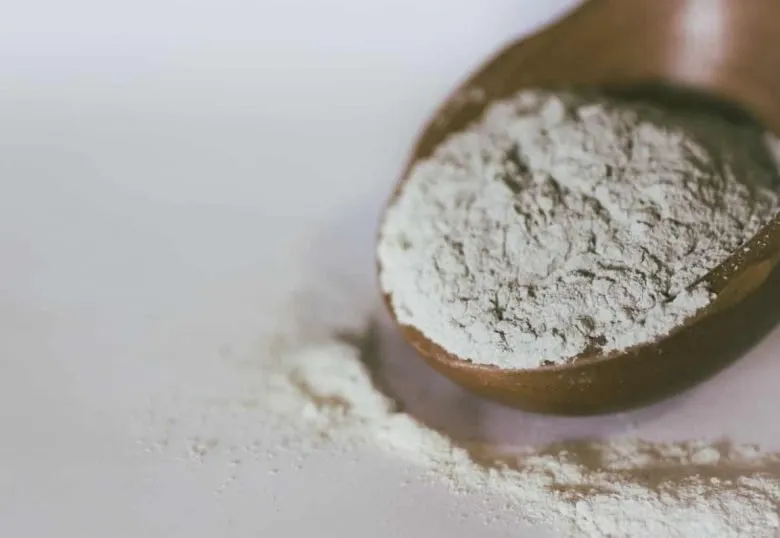
In mineralogy, the Bentonite is a phyllosilicate, that is a clayey type mineral formed by several layers that bind together. Its composition is given by the bond of calcium, sodium and montmorillonite. It is extracted from sediments of volcanic origin, as it is formed precisely by the decomposition process of the volcanic ash itself.
There are numerous bentonite deposits around the world. The most consistent are found in the USA, in particular in the state of Montanain the locality of Fort Benton, from which the vulgar name of bentonite derives.
Classic properties and uses of bentonite
The main physical property for which bentonite is known is its very large capacity for retain water and moisture. For this reason it is widely used in construction, especially as a waterproofing agent. An equally common use is for the preparation of cat litter, as, in addition to absorbing liquids, it retains odors and tends to form those typical “balls”, which are easy to remove when cleaning. This type of litter you can find it in specialized shops.
For human use, it is used in particular purifying and detoxifying formulations, for example to remove the residues of feces and mucus present in the intestine. Also this type of products are easily found on the market.
Bentonite in biological oenology
In the agricultural field, the classic use of bentonite is for the clarification of wine.
It is in fact used in oenology for its deproteinizing effect. Added to the liquid, the powder swells, assumes a negative charge and binds to proteins causing them to precipitate.
In practice, the treatment with bentonite is an oenological method of protein stabilization, the only one allowed in organic winemaking (if you are looking for it you can find it here).
In white vinification this rock can be used already in the press, on grapes, to decrease the oxidative enzymatic charge; or in flotation, for the removal of proteins derived from the grape lees, responsible, during the alcoholic fermentation, of the reduced odors.
In oenology, all three types of bentonite available on the market are used, namely: sodium, calcium And activated.
Sodium bentonite
It is the richest version of sodium ions, with a maximum deproteinizing effect. It settles slowly and in a not very compact way. It is recommended for wines with high protein instability.
Calcium Bentonite
It has a lower deproteinizing capacity, with compact deposits and rapid decanting dynamics. It is more suitable for delicate and less unstable wines.
Activated bentonite
It is the calcium that has undergone a treatment with sodium. It swells in less time in contact with wine and is more effective than the others, with the same dosage. It is therefore an intermediate type, very common for most wines. It is also known as gelbentonite.
Bentonite in viticulture as a fungicide
Returning to real field practices, bentonite powder is establishing itself as an excellent fungicide in organic viticulture. Obviously you have to use the specific one for agriculture, which is the extremely fine calcium powder (found here). We know that the vine plant it is very prone to attacks by fungal pathogens, in particular in phenological phases the growth of the bunches and the final ripening of the grapes. It is precisely on the cluster that this mineral powder can perform an important protective function. In particular:
- heals the berry wounds caused by hailsplits from powdery mildew And crackingreducing the risks of proliferation of parasites such as vine moth;
- used together with sulfur or cupric products, increases the effectiveness of anti-mildew treatments;
- controls humidity, preventing the proliferation of yeasts, bacteria and fungi, reducing the risks of botrytis and rot in pre-harvest.
The agricultural uses of bentonite
Bentonite powder is also useful in other organic farming practices. Its use is similar to that of other rock powders that we have already studied, such as kaolin and the zeolite. As a fungicide, this rock is excellent to vaporize around the collar of vegetable plants, so as to avoid the onset of rot. It can be used directly on the ground to improve its draining capacity. Another very interesting use is that in the process of home composting. If added to the heap, in a percentage of 1%, it absorbs humidity and retains nutrients, thus speeding up the formation of the organic substance. It also has another fundamental function: it eliminates bad smells that the composter inevitably emits.
On fruit trees
In the family orchard, bentonite is used in the preparation of log pulp, mixed with hydrated lime and cupric products. The log pulp is brushed on the main stem and protects against wood diseases and parasites.
Another use is when yes they plant bare root trees and the harnessing technique is used. The addition of bentonite improves the ability of the sapling to take root.
Finally, it can be used alone or as an adjuvant to cupric products in preventive treatments against fungal diseases, such as: downy mildew, peach bubble, monilia, corineumetc.
Recommendations for use
Bentonite powder for agricultural use is dissolved in water and sprayed with one shoulder pump (like this one) (or other equipment brought by the tractor).
It is of absolute importance, once the use is finished, to clean the nozzles of vaporization, to avoid that they become clogged and have to be replaced.

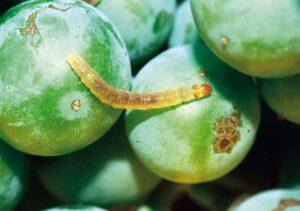
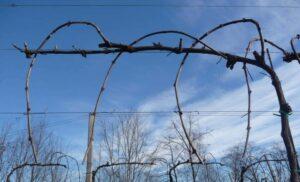
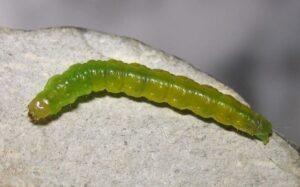
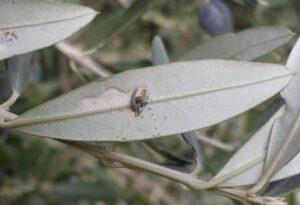
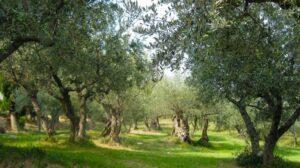
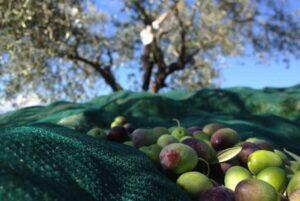
Start a new Thread